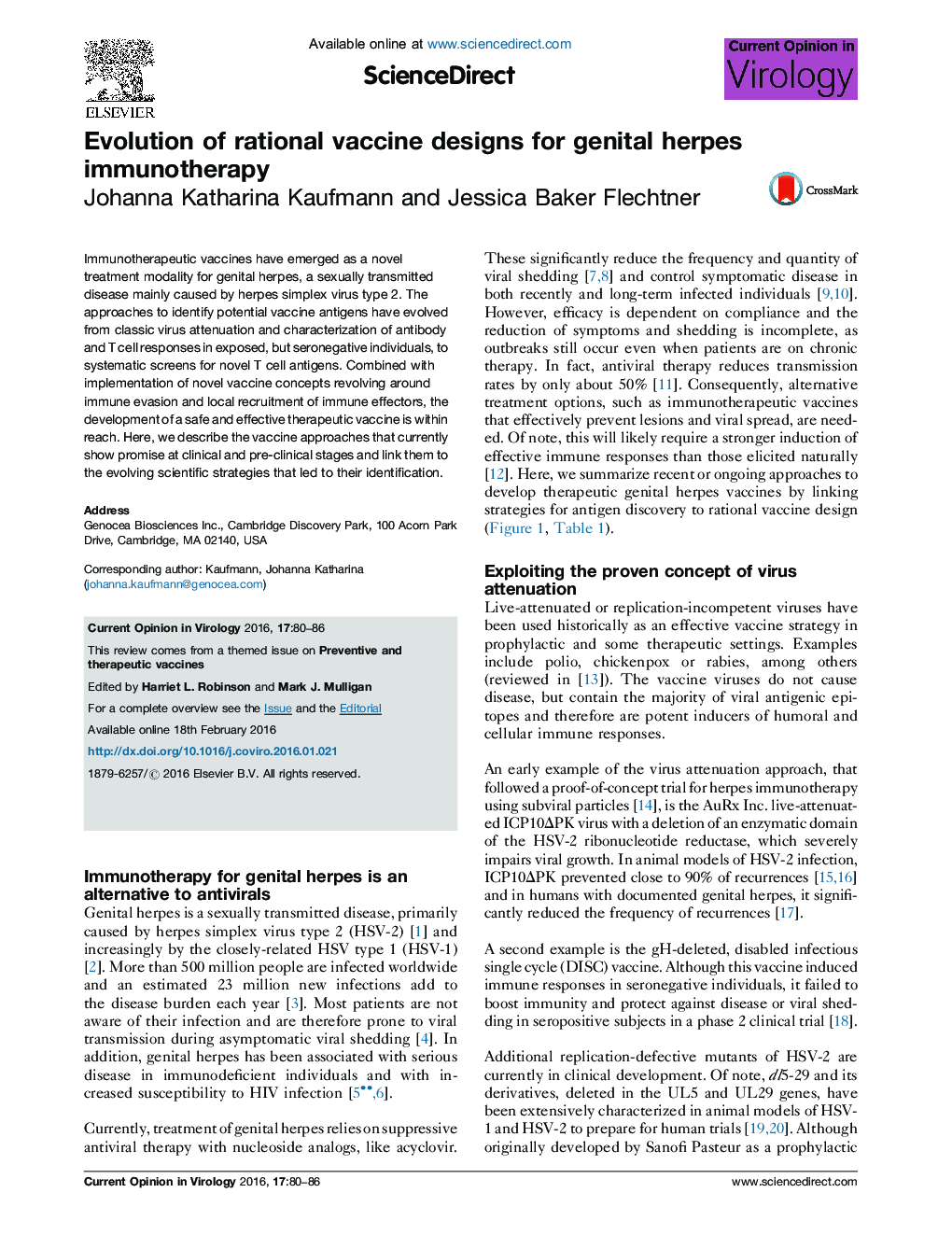| کد مقاله | کد نشریه | سال انتشار | مقاله انگلیسی | نسخه تمام متن |
|---|---|---|---|---|
| 5806619 | 1555909 | 2016 | 7 صفحه PDF | دانلود رایگان |
- Early genital herpes immunotherapy aimed at inducing neutralizing antibodies.
- Herpes-specific T cell responses may be as important as antibody for disease control.
- Technologic improvements in screening methods identify relevant T cell antigens.
- Augmentation of local herpes-specific immune responses is critical to immunotherapy.
- Escape from immune evasion and mucosal targeting may improve vaccine efficacy.
Immunotherapeutic vaccines have emerged as a novel treatment modality for genital herpes, a sexually transmitted disease mainly caused by herpes simplex virus type 2. The approaches to identify potential vaccine antigens have evolved from classic virus attenuation and characterization of antibody and T cell responses in exposed, but seronegative individuals, to systematic screens for novel T cell antigens. Combined with implementation of novel vaccine concepts revolving around immune evasion and local recruitment of immune effectors, the development of a safe and effective therapeutic vaccine is within reach. Here, we describe the vaccine approaches that currently show promise at clinical and pre-clinical stages and link them to the evolving scientific strategies that led to their identification.
Journal: Current Opinion in Virology - Volume 17, April 2016, Pages 80-86
